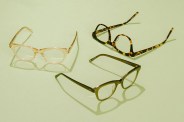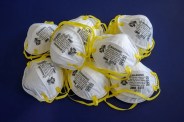Wearing a face mask in public is crucial right now. Proper safety measures like wearing a mask, or some kind of cloth covering, along with hand-washing and sanitizing, help to prevent the spread of coronavirus and potentially save tens of thousands of lives. If you’ve been doing your part, you’ve likely come across some other issues along the way, like dry hands. And, as you use a face mask to guard your airways from a gauntlet of grocery store shoppers, you might’ve also experienced foggy glasses.
Why are my glasses fogging up?
In the midst of a web of looming threats, foggy glasses are a pretty minor inconvenience. But, an inconvenience, nonetheless! And it helps to know why this phenomenon happens so you can stop the issue.
Water molecules have a certain amount of surface tension. This surface tension is what allows water droplets to form and retain their shape. When you wear a mask, much of the air and water vapor that you exhale gets redirected upward. When this warm air interacts with the cooler surface of your glasses, that’s when condensation happens, making the lenses foggy.
Here’s How to Fix It
Thankfully, it’s an easy fix. According to this 2011 article published in the National Institutes of Health, “Washing the spectacles with soapy water leaves behind a thin surfactant film that reduces this surface tension and causes the water molecules to spread out evenly into a transparent layer.”
Simply wash your glasses with soap and water et voila! Vision restored. But, you can’t use just any soap. “If you use anything that says for sensitive skin or has some sort of lotion in it, don’t use that,” notes optometrist Joseph Allen in an interview with NPR. “That’ll actually just get stuck on the lenses and smear it even more.” So, while soap that’s formulated for folks with sensitive skin is good for the hands, it just won’t cut it for specs. Allen recommends applying a single drop of soap to both of the lenses using your fingers and rinsing it off with water.




